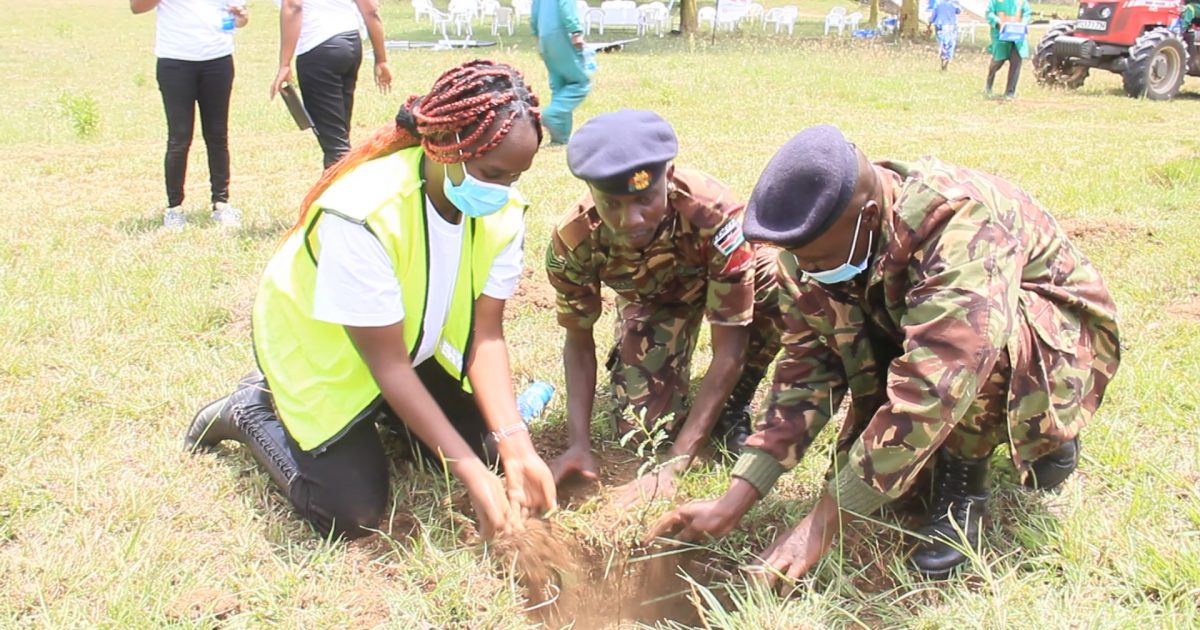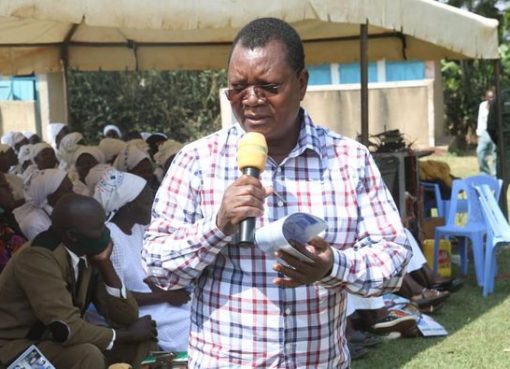Equity Bank has planted about 1.4 million seedlings in several parts of the country since it launched tree planting drive in November last year with a target of planting 35 million seedlings countrywide.
The Bank Regional Manager, Nakuru, Collins Mukangu said the institution was working with Kenya Forest Service (KFS) and accredited seedling vendors to produce seedlings hence ensuring that the target is achieved and reduces the destruction of forests.
“The project will also empower youth who will be tasked with raising high-quality tree seedlings in nurseries as an income-generating activity,” Mukangu noted.
Mr Mukangu indicated that the bank was planting the trees as part of giving back to society through the Corporate Social Responsibility (CSR).
“If Kenya is to increase forest cover by 10 per cent in the next two years, the task needs partnership with other stakeholders to fulfill it,” he noted.
“Achieving the targeted forest cover, restoration, and rehabilitation of degraded forests requires a strong cooperation and collaboration between KFS and other partners, it is a collective responsibility,” Mukangu continued.
The Rift Valley Institute of Science and Technology (RVIST) in Nakuru through a Public-Private sector partnership aimed at driving sustainability and increasing the country’s forest cover has also spearheaded the planting of over 5,000 trees at the institution.
The Principal, Dr Daniel Mutai, said the scheme was also aligned to Kenya’s ‘Big Four’ Agenda on Food Security and Youth Employment as majority of the indigenous trees planted were fruit and medicinal trees of commercial value.
The initiative is brought on board by the Kenya Defense Forces (KDF), Kenya Forest Service (KFS), Equity Group, International Tree Foundation (ITF) and Wezesha Trust.
“We shall ensure that the seedlings are well taken care of so that we have a survival rate of at least 90 per cent,” he said.
Dr Mutai said a countrywide tree planting exercise during current rains would go a long way in enabling the country achieve a ten per cent forest cover and called on other institutions to follow suit.
“The government policy is to have a 10 per cent tree cover, a feat we have not yet achieved. If you have ten acres, the government has said that you set aside one acre to plant trees,” he said.
Captain Desmond Hila from the 66 Battalion, Gilgil Barracks, noted that the Kenya Defense Forces had rolled out the Environmental Social Program where soldiers and their families and communities living around military barracks were being encouraged to grow trees and enlightened on dangers of climate change.
Captain Hila noted that the tree planting exercise had in a way created employment for young people as the tree seedlings had been bought from youth groups.
He called on residents to embrace tree planting with a view of assisting the government to achieve its vision of restoring the environment.
“Through the Presidency, the Kenyan government has declared its intention to plant two billion trees within the next three years. This is in a bid to increase the country’s contribution to addressing climate change. It is also an opportunity to engage the youth population in environmental conservation as well as provide an opportunity to earn an income through tree planting and maintenance activities,” stated the KDF Captain.
International Tree Foundation, Country Representative, Teresa Gitonga, said the organization had planted 70,000 tree seedlings in Mount Kenya Forest in its drive aimed at planting 20 million trees in the Country’s five water towers.
She warned that continued degradation of the environment was leading to natural calamities such as floods, droughts, rising water levels in lakes and unpredictable weather patterns which were a threat to mankind.
Redempta Mutisya from Wezesha Trust revealed that the organization was working jointly with ‘Global Gone Green’, an international Non-Governmental Organization, to train women and pupils on the importance of planting trees and conserving the environment.
She said it was time policy makers ensured that the culture of conserving the environment was inculcated in Kenyans at a young age.
By Anne Mwale and Dennis Rasto





